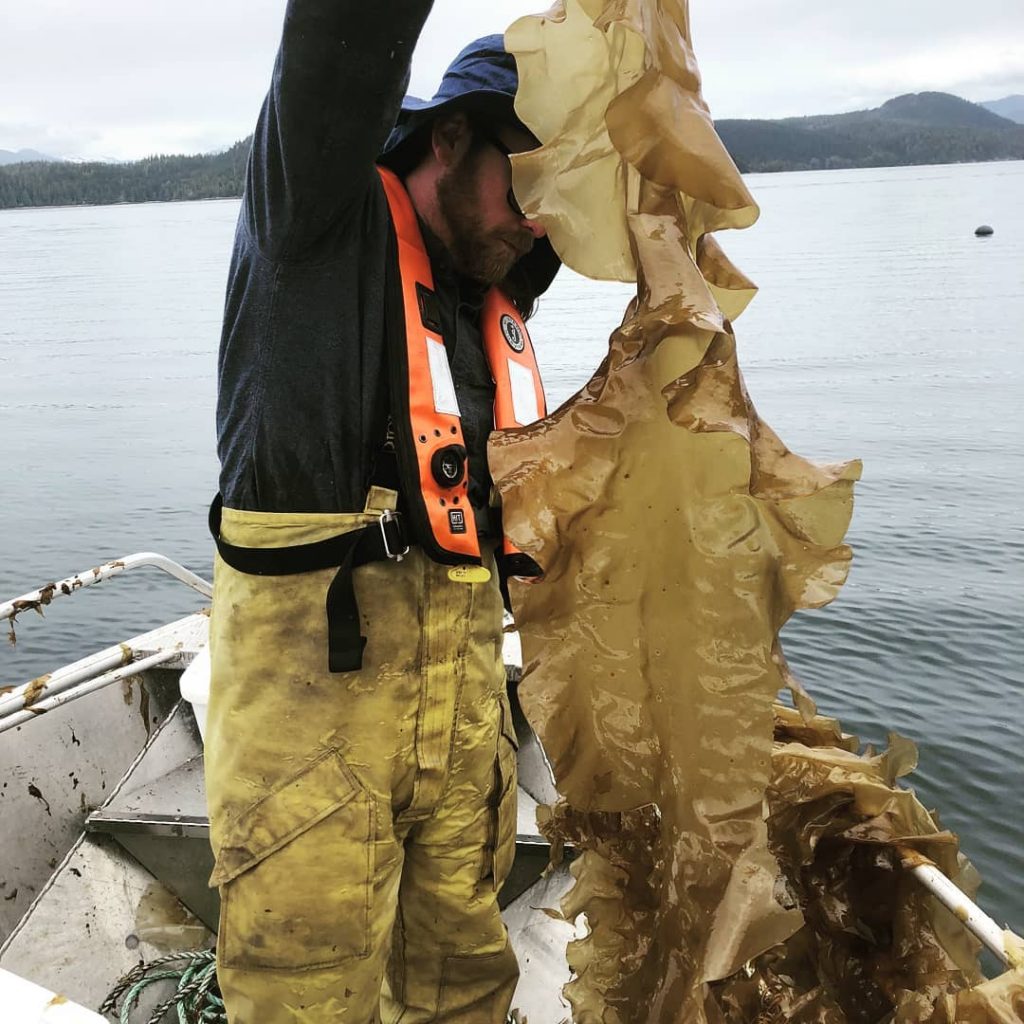
B.C. company brings seaweed farming to North America
July 3, 2020
By ANA staff
 A Cascadia Seaweed worker harvesting golden kelp. (Credit: Cascadia Seaweed)
A Cascadia Seaweed worker harvesting golden kelp. (Credit: Cascadia Seaweed) With more than 99 percent of global seaweed production taking place in Asia, Cascadia Seaweed is looking to poise itself as North America’s largest cultivator.
The year-old B.C. company has begun construction on a 1,000-hectare seaweed farm in Bamfield, Vancouver Island. Two one-hectare farms outside of Bamfield have already been seeded and installed and the first harvest is expected to yield up to 90 tonnes of sugar kelp.
According to the company website, Cascadia is in the agreement process for 65 hectares and have visibility on 250 more. Within five years, it hopes to establish 1,000 hectares of active seaweed farms.
“When we first started the business, we thought 100 hectares would service the market. We now have sights on 1000 hectares,” says Bill Collins, chairman of Cascadia Seaweed. “Now we are building more than a business… we’re developing a sector. We are working with governments to ensure new investments are made to accelerate this industry to the next level.”
In addition to its ocean-based operation, the company plans to grow a particular protein-rich seaweed in land-based tanks. Collins anticipates a growing market for seaweed in North America that will also be sustainable.
Farming seaweed does not use arable land, and yields a crop suitable for various products such as livestock feed, nutraceuticals, bio-packaging, as well as nutritious food for the growing human population. Underwater kelp forests are also responsible for sequestering carbon, improving water quality and creating habitat while only requiring sunlight and nutrients from the sea to grow.
“As we march to a global population of 11 billion, we cannot ignore the opportunity nor the need to feed the planet with this fast growing, nutritious food that makes a positive impact on our environment,” says Mike Williamson, founding partner and CEO. “The highest and best value for our seaweed is the North American human food industry, more specifically, the plant-based, alternative protein category.”
As part of its business model, Cascadia looks to develop local partnerships with B.C.’s Indigenous communities along the coast.
“Creating mutually beneficial partnerships and providing economic stability for coastal communities are key pillars to what we consider success,” says Williamson. “We are growing nutritious food in a sustainable way, we are employing people on the water, and the more we grow the more positive an impact we have on the environment.”
Cascadia is set to launch a consumer-facing side of the business in summer 2020.
Advertisement
- First Nations alliance calls for end to net pen salmon farming
- All Mowi Canada West farms are now ASC certified





